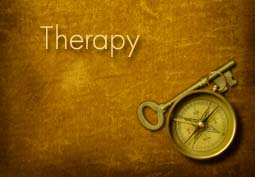Therapy and Counseling
Services in San Francisco
The Flood Building
Suite 441
San Francisco, CA 94102
(415) 846-6557
Daniel C. McCracken, MA, MFT
Licensed Psychotherapist
Contact Daniel
Anxiety
It is possible to get on the other side of your anxiety, and within the safety of therapy you can do just that, realize a life without the constant fear. No more monsters.
You were not born feeling anxiety. With the correct treatment, you can put these feeling states behind you. You can move on.
Anxiety conditions are something that I regularly treat in my psychotherapy private practice. Extreme feelings associated with anxiety can have a major, disruptive effect on an individual's existence, having an impact on his or her home, work and social life and often seriously limiting the ability to live life in a normal manner.
Anxiety itself is simply a symptom that is produced in response to a fear. It is based in the feeling that something bad is going to happen , and this triggers the flow of the hormone adrenalin in the body, eliciting a 'fight or flight' reaction. This may be something that you have a direct fear of or it may be a fear of something unknown.
It's as though the individual is caught in a vicious cycle, with fear eliciting more fear, symptoms feeding further symptoms and an overwhelming feeling of being trapped behind a locked door and not being able to get out.
Treatment for anxiety, can provide the key to get your life back on track.
Symptoms of Anxiety:
- Feelings of panic, fear and uneasiness
- Uncontrollable, obsessive thoughts
- Repeated thoughts or flashbacks of traumatic experiences
- Nightmares
- Ritualistic behaviors, such as repeated hand washing
- Problems sleeping
- Cold or sweaty hands
- Shortness of breath
- Palpitations
- An inability to be still and calm
- Dry mouth
- Numbness or tingling in the hands or feet
- Nausea
- Muscle tension
Types Of Anxiety Disorders
- Panic Disorder: People with this condition have feelings of terror, fearfulness, intense apprehension, often associated with feelings of impending doom. Panic attack symptoms include: shortness of breath, heart palpitations/chest pains, choking sensations, or a fear of going crazy.
- Obsessive-Compulsive Disorder (OCD): People with OCD are plagued by constant thoughts or fears that cause them to perform certain rituals or routines. The disturbing thoughts are called obsessions and the rituals are called compulsions.
- Post-Traumatic Stress Disorder (PTSD): PTSD is a condition that can develop following a traumatic and/or terrifying event. People with PTSD often have lasting and frightening thoughts, dreams, and memories of a traumatic and/or terrifying event.
- Social Anxiety Disorder: Social anxiety disorder involves overwhelming worry and self-consciousness about everyday social situations.
- Specific Phobias: A specific phobia is an intense fear of a specific object or situation, such as animals, flying, seeing blood, or heights. The level of fear is excessive or unreasonable to the situation and may cause the person to avoid everyday situations.
- Generalized Anxiety Disorder: Excessive anxiety, worry about a number of events or activities, and tension, even if there is little or nothing to provoke the anxiety.
